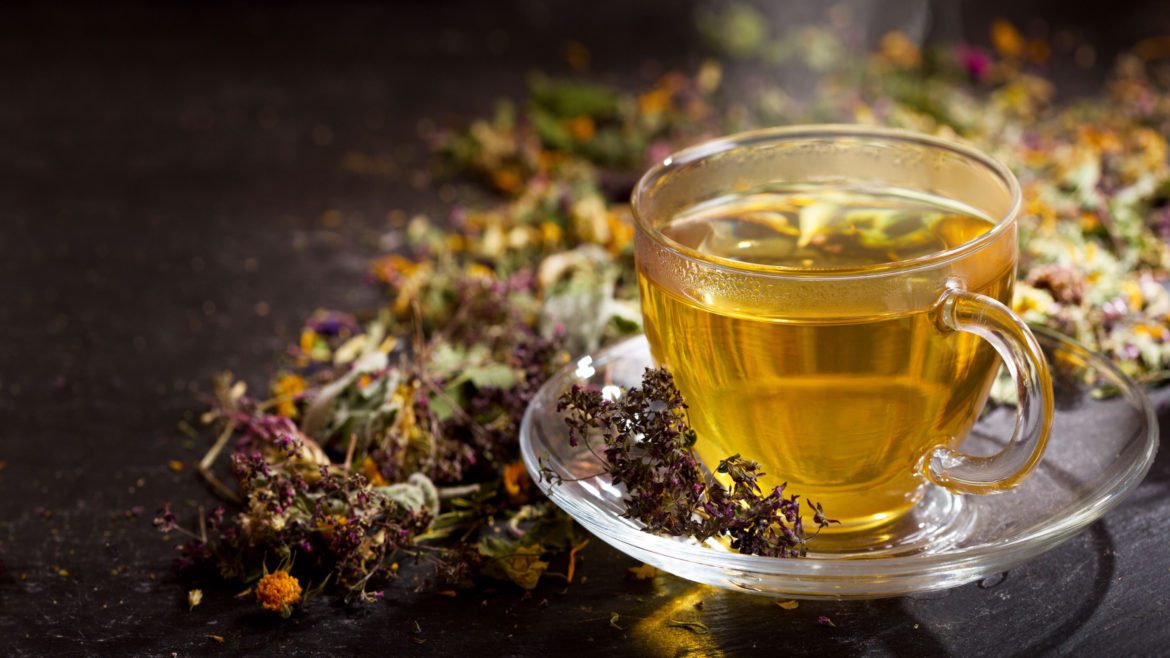Disclaimer: The information presented is not intended to diagnose, treat, cure, or prevent any disease. All information is intended for your general knowledge only and is not a substitute for medical advice or treatment of specific medical conditions. Discuss this information with your healthcare provider before use.
In addition to being warm, soothing and delicious, herbal teas may also offer a range of health benefits. Depending on the type of herbs used, consuming herbal teas can offer ways to help with the following areas:
- sleep
- fluid retention
- stomach and nausea issues
- skin issues
- stress and anxiety
Herbal Tea vs. Traditional Tea
We’re accustomed to drinking black, green, white or oolong tea made from leaves of a C. sinensis variety of tea shrub, but herbal teas are different from those “traditional” teas.
Herbal teas are brewed from a variety of plants that are known to have therapeutic properties. Herbs, flowers, spices and fruits are among the most common ingredients used in making herbal teas.
Making Herbal Tea
To brew herbal tea from scratch, you can gather the individual ingredients, which is useful if you want to combine different herbs and flavors. Many find this is a way to engage in a healthy ritual that brings relaxation as you prepare a soothing cup of tea.
Brewing herbal tea is as simple as adding the herbs, plants or flowers to boiled water and letting them steep. The time you let it steep differs depending on the ingredients. Usually, the longer it steeps, the more beneficial properties are released. The timing for herbal teas ranges from as little as 5 minutes to as long as 30 minutes.
When finished brewing, just strain the ingredients and enjoy your tea. If you need a sweetener, honey is recommended and you can enjoy it warm or cold.
Herbal teas are also readily available in prepackaged tea bags in your local grocery stores.
Common Herbal Teas
The most recognized herbal teas are chamomile, peppermint, lavender, hibiscus and ginger.
- Chamomile has long been known to promote a restful sleep, as well as being touted for its anti-inflammatory properties. It may also help with skin issues.
- Peppermint is known for its antiviral and antimicrobial properties. It has been known to help with respiratory issues and has long been associated with easing an upset stomach.
- Hibiscus flower tea has been associated with helping to lower blood pressure and produce a calming effect and mood boost.
- Ginger tea, made from the ginger root, has a long history of being consumed to relieve nausea and digestive issues. Its active ingredient, gingerol, is helpful for inflammation and boosting the immune system.
- Lavender tea has been known to produce a soothing effect, help with stomach issues, skin issues and promote overall well-being.
These are just a few of the well-known herbs and plants that can be brewed for a beneficial tea. Making herbal teas is an ancient art and you can certainly keep busy exploring and researching the wide variety of ways to grow, procure, and make these healthy teas using a myriad of naturally grown ingredients.

